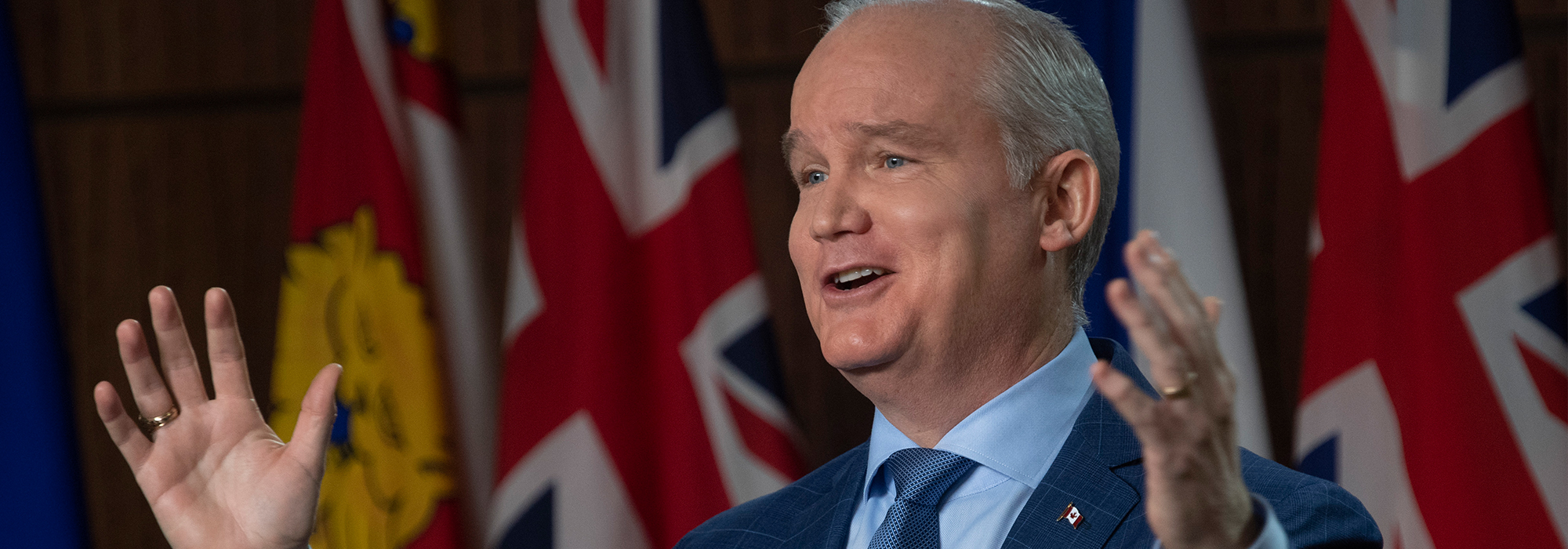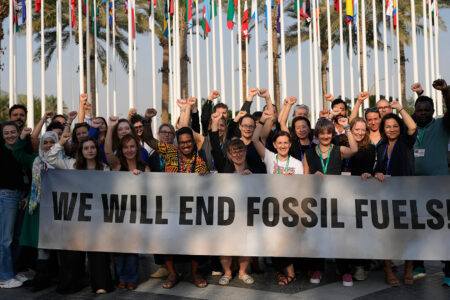
In the 2019 election campaign, Conservative leader Andrew Scheer put forward a climate change plan that was 61 pages long. Despite the large volume, very few can remember what the plan actually contained. Maclean’s columnist Paul Wells aptly described the plan in one word: whatever.
The fatal flaw of the 2019 Conservatives on the environment was not a lack of ambition to put forward pro-environmental ideas, but rather their insufficient desire to address anti-climate change measures. The carbon tax, at its core, is popular not because it features a rebate, but rather because it takes a clear stance against the universal enemy of climate change.
If Erin O’Toole is truly going to rebrand the Conservatives, he will have to avoid the mistakes of the past leader. That means putting forward initiatives that are more than just for the environment. They need ideas that are clearly against climate change and carbon emissions, specifically. In doing so, O’Toole and his party will have to overcome the ideological barrier that conservatives cannot be pro-environment and pro-economy at the same time. Both can be true.
Here are some suggestions that build on O’Toole’s strength as a consensus-builder and address the issue of climate change efficiently, fairly, and through natural market incentives:
Modifying a revenue neutral carbon tax
The most obvious tool in the toolbox is a continuation of Prime Minister Justin Trudeau’s carbon tax. Though O’Toole has clearly indicated his position against a carbon tax, he has also committed to the 2030 Paris Accord climate targets and the goal of a net-zero carbon economy by 2050. Achieving those commitments without a broad-based price on carbon will be incredibly difficult, if not impossible. Given O’Toole’s current position, he cannot endorse the Liberal version of the carbon tax. Instead, he could offer reforms to the policy that appeal to his voter coalition without undermining the fundamental behavioural impacts that come with a visible price on carbon.
First, O’Toole can take issue with the rebates. Committing to a quarterly rebate to taxpayers instead of a yearly one would help eliminate interim criticism of over-taxation. Meanwhile, increasing the amount rebated back to rural and Northern residents could prove popular and accommodate legitimate grievances surrounding a lack of public transit access or alternative forms of transportation in sparsely populated communities.
Second, the Trudeau government is currently offering small- and medium-sized business $350 million a year through retrofit programs to help them lower their emissions. For a small business owner in today’s economy, the idea of receiving your own money back from the government if you also pay for retrofits is insulting. O’Toole could remove the retrofit requirement and offer larger rebates for struggling small- and medium-sized businesses, especially those that still have to drive to multiple job sites like repairmen or home care workers. Of course, the incentive to retrofit would remain since the carbon tax continually increases in cost, but at least businesses could make that determination themselves.
Provincial negotiations
When it comes to the provinces, who have arguably been driving the anti-carbon tax bus, O’Toole could make a simple offer to work with individual provinces on equivalent plans. It’s easy to forget that if the federal carbon tax were repealed tomorrow likely only Alberta, Ontario and Saskatchewan would become carbon tax-free provinces. The Supreme Court challenge on the jurisdictional validity of an imposed carbon tax was heard in September and while a decision was expected to take several months, so far there has been no announcement on an outcome in this case. The provinces in opposition are standing on weak ground.
Each province has already submitted and received approval for their plans to tax high-emitting businesses. That means they only need to make up for the emissions reductions created by a consumer-facing carbon tax. If the provinces want to fight this, let them, but make it their problem to solve.
For example, Alberta and Saskatchewan could accelerate plans to close their coal-fired power plants or Ontario could re-introduce green retrofit programs for homeowners. Those programs would come at the expense of the provinces but, so be it, they asked for this. From O’Toole’s perspective, the emissions reductions would be similar but he would have a much easier time marrying his commitments to simultaneously fight climate change and respect provincial autonomy.
Climate-based accelerated depreciation
If a nuanced position on carbon taxation is untenable to O’Toole, there are still alternative policies that could demonstrate an anti-climate change agenda. One such option is to use a carrot, offering direct incentives, instead of the stick that was carbon taxation.
When the Trump administration cut corporate taxes and introduced accelerated depreciations for businesses, the Trudeau government responded with its own version called the Accelerated Investment Initiative (AII). A key part of the AII allowed business to immediately write off the full cost of machinery and processing equipment purchased after the policy came into effect.
To little fanfare, the Trudeau government also allowed for the immediate write-off of electric vehicle charging stations, some geothermal equipment and certain zero emissions vehicles under a certain price point.
If O’Toole is looking for a way to reduce emissions and help grow the economy, doubling down on these is a sure winner. O’Toole could create new classes of investments to cover the purchase of zero emissions fleet vehicles like taxis, freight trucks, or rental cars that are currently ineligible. Or he could create entirely new classes that only include products manufactured in a net-zero or lower-emissions manner, thereby incentivizing competing manufacturers to embrace low-carbon technologies sooner.
By making products created in a low-emissions manner eligible for the preferential tax treatment, O’Toole could create a domestic advantage for responsibly made Canadian products over internationally imported products – such as steel – in a trade compliant way. This would encourage environmentally friendly manufacturing practices while making it cheaper for thousands of Canadian businesses to make investments in their own future.
Helping pay for emissions reductions
O’Toole could create a fund to help provinces make substantial investments in anti-climate change initiatives. The federal government is set to hand out billions of dollars in stimulus programs, so why not use that money to target the heaviest emitting sectors, like vehicular transportation or electricity generation, by investing in projects that replace dirty forms of electricity or help bring zero emissions vehicle production to Canada?
Subsidizing a new car plant in the greater Toronto area or helping build a new power plant in rural Nova Scotia may not be the ideological manifestation of the Conservative movement, but neither is abandoning a revenue-neutral, market-based price on carbon. At least O’Toole could promote these initiatives as job creating, pro-blue-collar efforts to revive the Canadian economy. Of course, to reach any emissions reductions worth bragging about, the scale of the investments would have to be quite large, but such is the consequence of government choosing to take on the cost burden themselves.
Combining some of these measures together would help O’Toole and the Conservatives put forward an environmental policy that is cohesive, thorough, and arguably stronger than the current government’s policy. However, endorsing these ideas will cost political capital and/or taxpayer dollars. Spending either of those things in large quantities, even if it may mean improving your electoral chances, is never an easy thing to do.
Photo: Leader of the Opposition Erin O’Toole responds to a question during a news conference on Parliament Hill in Ottawa, Thursday, February 4, 2021. THE CANADIAN PRESS/Adrian Wyld






